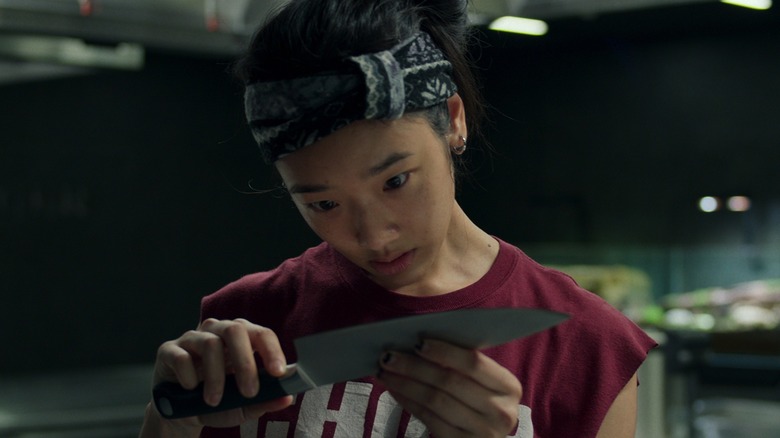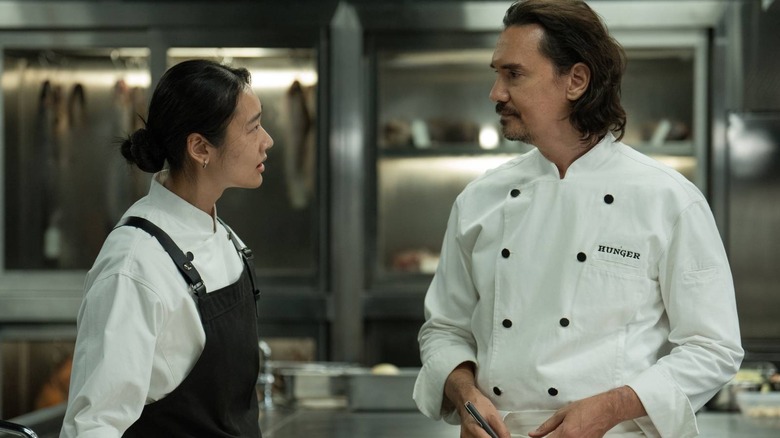Netflix's Hunger Is An Intense Thriller That Fans Of The Menu Need To See
"The Menu" was a modest success when it came out in theaters late in 2022. It was yet another scathing indictment of the 1% where something sinister lurks beneath all of the expertly crafted cuisines. The film gained even more notoriety when it came out on streaming on HBO Max, with even more people on TikTok and Twitter analyzing the themes. For anyone whose hunger for social commentary combined with delicious food wasn't satiated with "The Menu," Netflix offers another course appropriately titled "Hunger."
The movie follows Aoy (Chutimon Chuengcharoensukying), a talented chef whose creations catch the eye of one of the most popular restaurants in Thailand. It's there she works to perfect the art of fine dining under the tutelage of Chef Paul (Nopachai Chaiyanam). However, he pushes his pupils to their limits, making "Hunger" a bit of a cross between "The Menu" and "Whiplash." One could also draw comparisons between other anti-capitalistic films as of late, such as "Triangle of Sadness."
Like those movies, "Hunger" wears its themes on its sleeve, but if you don't mind another journey into the depravity of the ultra-wealthy, Netflix's latest will keep you coming back for seconds.
Hunger shows how people need more than money to live
"The Menu" touches upon numerous themes, including elitism and wealth disparity. Only the "best" in society can eat at Chef Slowik's restaurant, and they don't even appreciate it. Similar sentiments are expressed in "Hunger." Aoy initially works at a small family outpost, serving noodles to passersby. The way the food's framed in the shot looks splendidly appetizing, and the people at the restaurant seem to really enjoy it. But then, there are scenes where the rich slurp down whatever Chef Paul puts in front of them. Not only does the food look unappetizing, but the people consuming it have no regard for the care that goes into it. They don't appreciate fine dining as much as people who are simply eating to live.
Additionally, there's a clear difference in how Aoy prepares food at the start of the film versus Chef Paul. Viewers can see the passion she holds while Chef Paul carries an almost obsessive devotion for getting every last detail, no matter how superfluous, just right. It's similar to "The Menu" in this way, too, as Chef Slowik has forgotten his passion for preparing dishes until he's finally tasked with making a simple cheeseburger. Both movies target the pretentiousness of making food that may be impractical but is held in higher regard due to the status of the person who made it.
It's en vogue to target the wealthiest of society in film at the moment, so if you want further proof the excesses of capitalism are felt around the world, make sure to check out "Hunger," now playing on Netflix.

